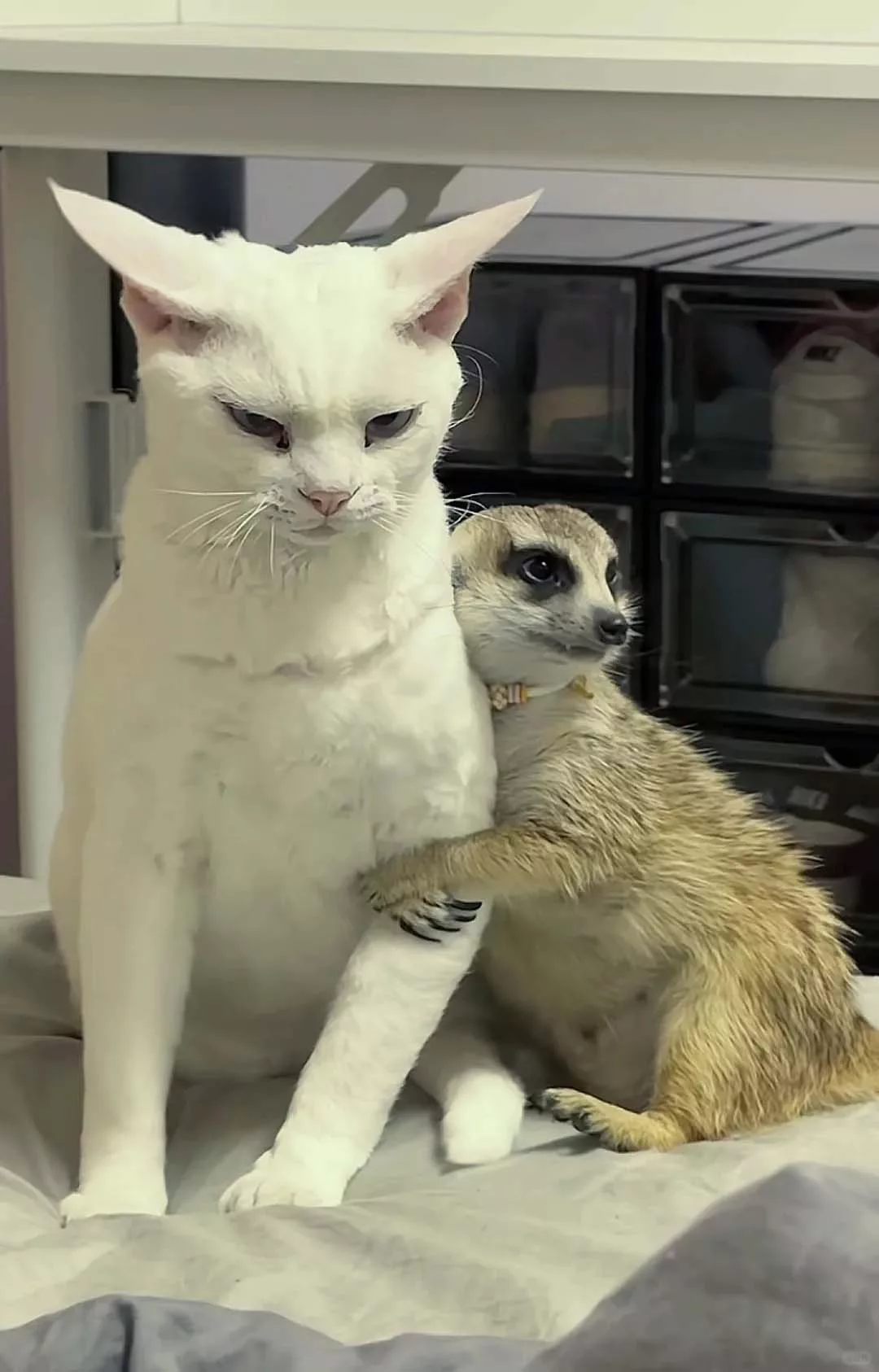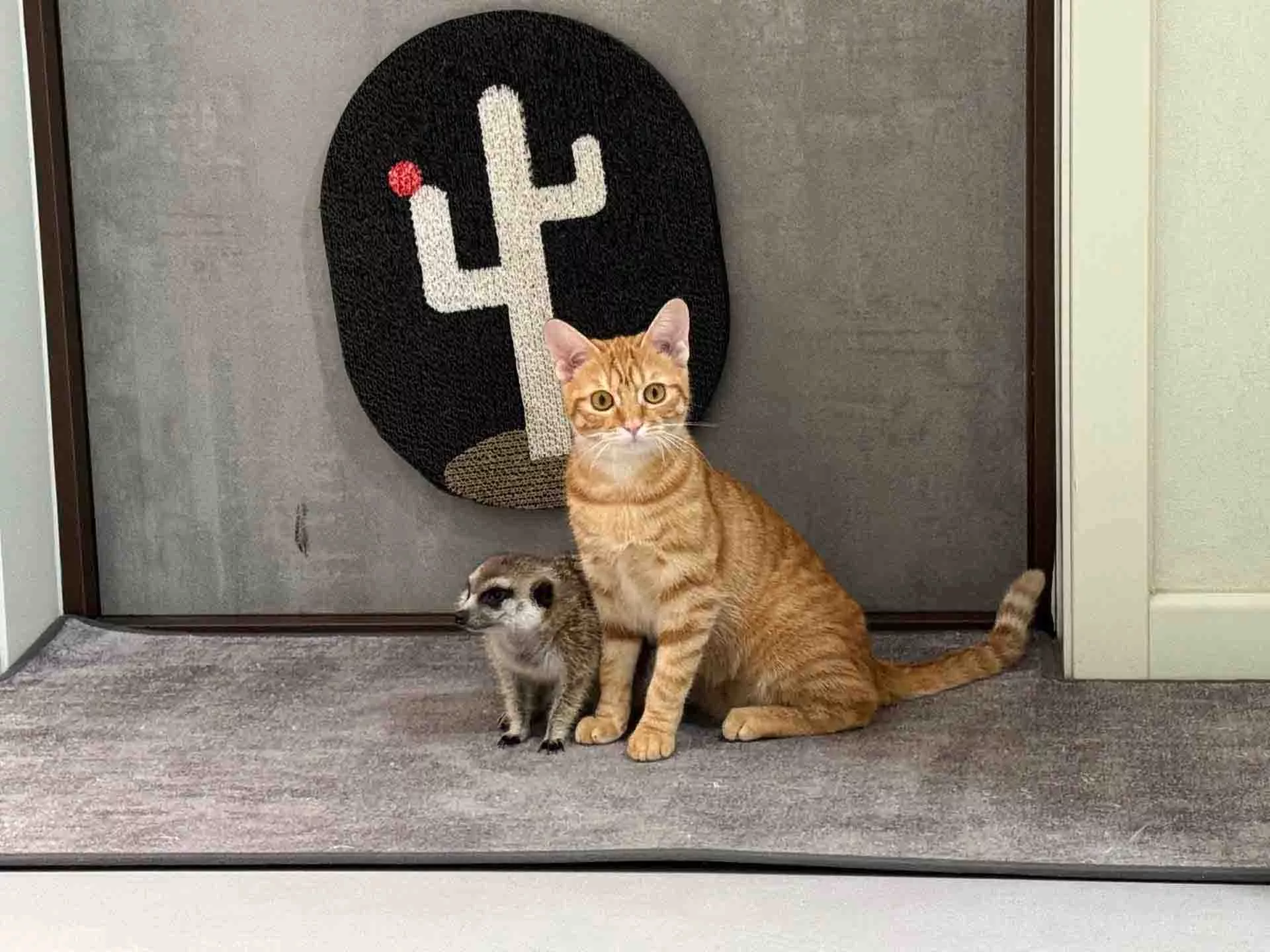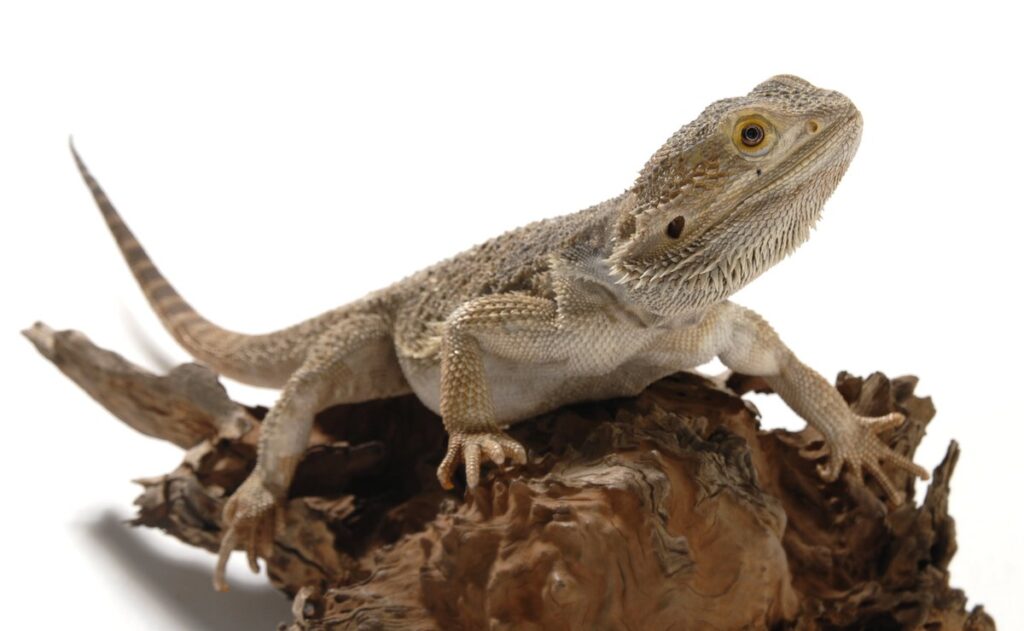
Posts page
The Ultimate Guide to Meerkat Pet Care: What You Need to Know Before Adopting

Meerkats (Suricata suricatta) are charming, social creatures from the mongoose family, native to southern Africa’s Kalahari Desert. Their upright stance and lively personality make them a popular choice for exotic pet lovers. But is a meerkat the right pet for you? Let’s explore the pros, cons, and what it takes to care for one.
Basic Characteristics
- Scientific name: Suricata suricatta
- Body length: ~30 cm
- Tail length: ~20 cm
- Weight: 700–750 grams
- Lifespan: Up to 13 years in captivity
- Diet: Insects, scorpions, snakes, lizards, bird eggs, and some plant matter
- Social structure: Live in groups of 20–60 in the wild
- Activity cycle: Diurnal (active during the day)

Advantages of Keeping a Meerkat as a Pet
- Cute and Exotic Appearance
Meerkats are visually striking with orange-brown fur, dark stripes, and their signature upright pose. - Excellent Pest Control
Known for hunting rodents, snakes, and insects—some owners even use them as natural pest control. - Low Odor
Their scent glands are not offensive to humans. Most smells come from the body or litter box. - Trainable and Adaptable
With consistent training, meerkats can use a litter box within a few months. - Can Coexist with Other Pets
A single meerkat in a peaceful pet environment often gets along with other animals.

- Low Destructiveness
Less likely to damage furniture compared to cats or dogs (though may steal small items like insoles!). - Human-Like Schedule
Diurnal habits make them easier to live with—they sleep at night just like you do.
Disadvantages of Keeping a Meerkat as a Pet
- Highly Social Animals
Meerkats thrive in groups. A lone meerkat may become lonely or depressed—consider keeping at least two. - Natural Diggers
They love digging. While not likely to damage your floors, your garden or houseplants may suffer. - High Cost
One meerkat can cost around £1,000 (approx. $1,600 USD). - Temperature Sensitivity
They require warm environments—especially in winter, heating systems are often needed. - Limited Veterinary Support
Exotic pet vets are rare. Even in big cities, finding someone with meerkat experience can be difficult. - Can Be Noisy
New environments or strangers may trigger vocalizations as they adapt.
Care and Breeding Tips
- Choose wisely: Avoid meerkats that spent early months in the wild—they’re harder to tame.
- Gender matters: Male meerkats tend to be gentler and better suited for homes.
- Feed close to nature: Insects should be a staple. Avoid harmful foods like seafood, fatty meats, milk, and potatoes.
➡️ Need a full list? Check out this meerkat food guide. - Use a leash outside: Prevent accidents or accidental poisoning during walks.
Final Thoughts
Meerkats are fascinating, intelligent, and rewarding companions—but they’re not for everyone. If you’re ready to invest time, money, and patience, they can be a unique and joyful part of your life.
If you found this article helpful, feel free to share it with friends who are also curious about keeping a meerkat!















